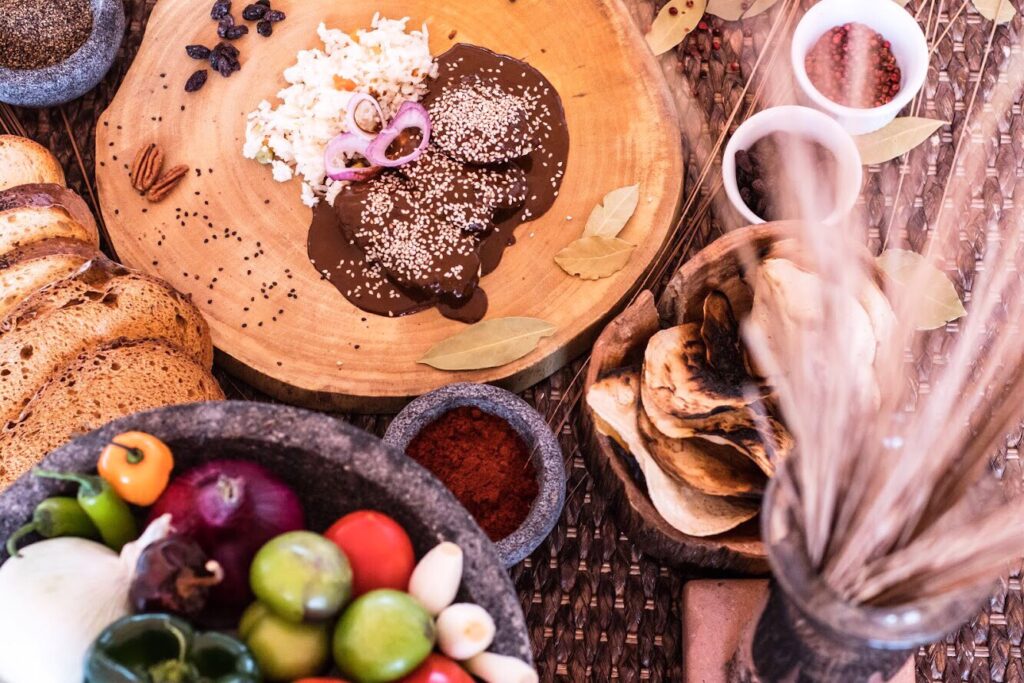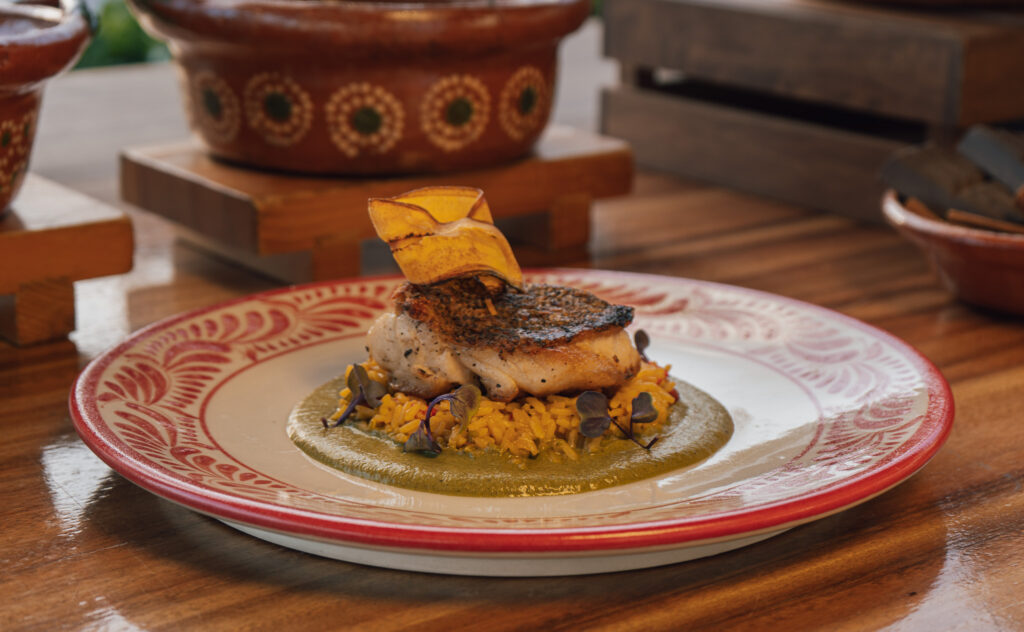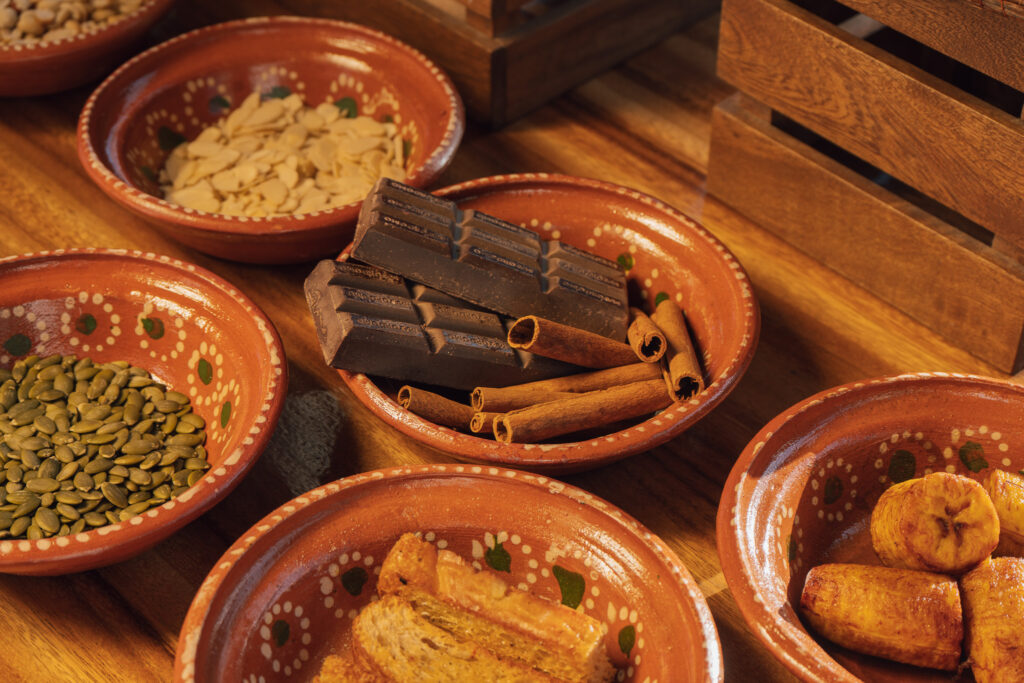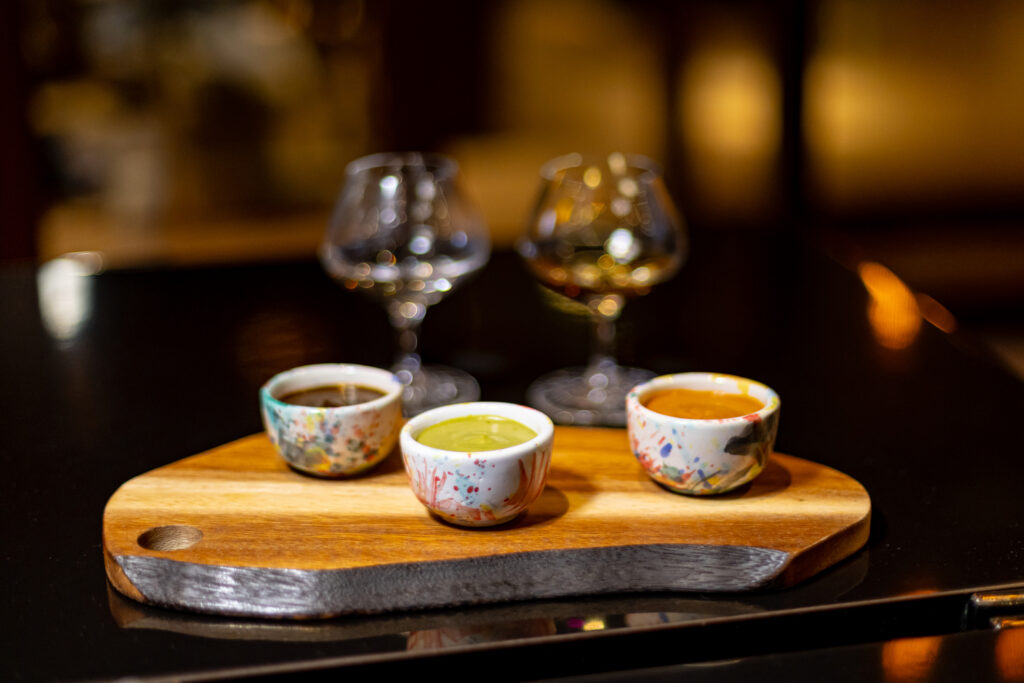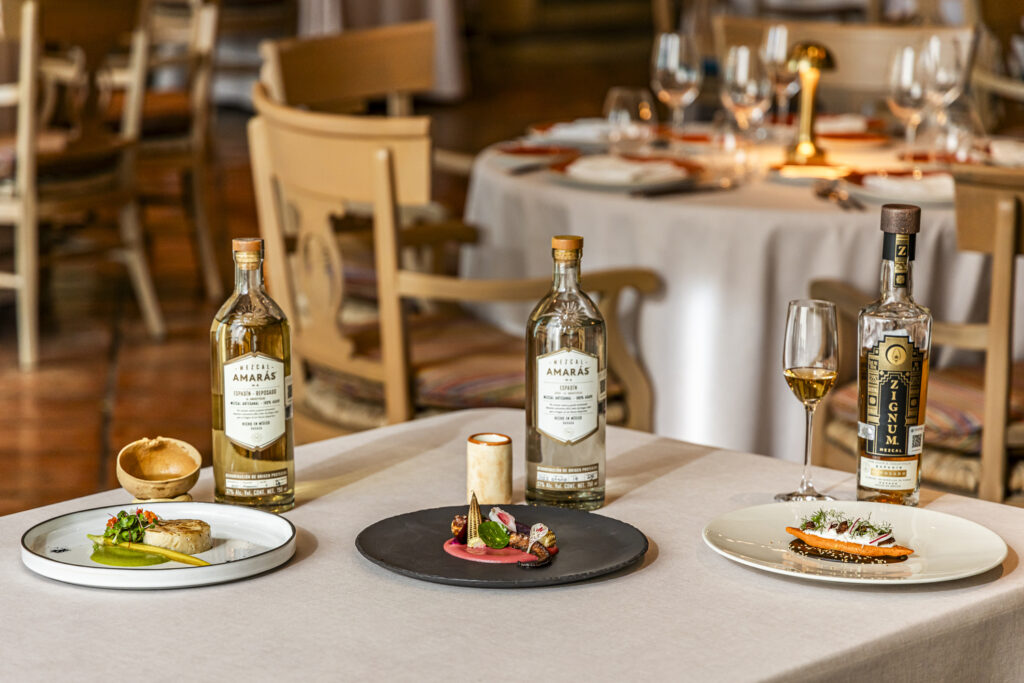Mole, that culinary treasure that has captivated taste buds worldwide, is much more than a flavor medley; it reflects Mexico's rich heritage and traditions. Today, we invite you to delve into the fascinating journey of mole preparation, exploring its roots, ingredients, and the profound cultural connection it embodies, and as a bonus, a workshop that will teach you the step-by-step process of crafting this dish.
Historical roots and styles
Mole traces its origin to pre-Hispanic Mexico, blending indigenous and European influences. Its evolution over the centuries has created a variety of styles and unique flavors in different parts of the country.
Each region of Mexico boasts its unique version of mole, with family recipes passed down through generations. From the chocolate and chili nuances of mole poblano to the smoky notes of Oaxaca's mole negro —black mole, each variety tells a unique story.
Key ingredients and preparation
The soul of mole lies in its intricate blend of ingredients, varying by region and recipe. Fundamental elements include an array of chilies, chocolate, spices, herbs, and, in some versions, fruits and seeds. This diverse ensemble creates a symphony of flavors, from spicy to sweet, in every bite, often accompanied by chicken, rice, and delicious tortillas.
Preparing mole is a labor of love that demands time and dedication. Fresh and dry ingredients are toasted and ground to create the mole base, known as ‘masa.' This masa is cooked with broth and additional ingredients according to the recipe.
Cook and taste mole in Los Cabos
Cooking mole is more than a culinary task; it's an act of celebration and tradition. Mole is proudly served on special occasions and festivities, a gesture of hospitality and shared love among families and communities.
Enjoy a unique culinary experience overlooking the sea at the Encanto restaurant in Mar del Cabo. Led by Executive Chef Mario Rueda, you can enjoy a new mole workshop that explores different varieties, from red mole poblano to Taxco's pink mole with unique pink pine nuts. You'll learn firsthand how to balance chilies, chocolate, and spices to create a distinctive sauce. In addition to the recipe, you'll receive a cookbook with practical tips to recreate mole at home.
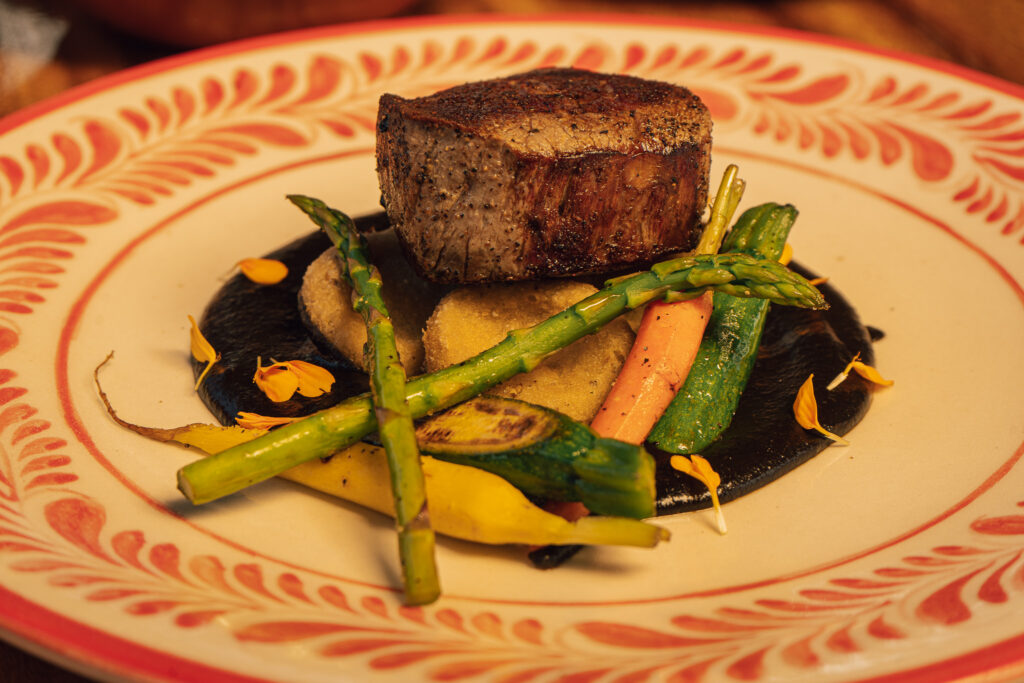
Additionally, Grand Velas Los Cabos and Grand Velas Boutique Los Cabos will celebrate International Mole Day on October 7th with a special tasting session. Participants at Grand Velas Los Cabos can enjoy a variety of mezcals, ranging from the fruity Alipús San Andrés to the smooth Alipús San Juan and the herbal Alipús San Baltazar. Meanwhile, Grand Velas Boutique Los Cabos offers premium mezcals such as Colores Tepeztate, Colores Tobalá, and Colores Cuishe. Both properties feature a mole menu designed to pair with the mezcals, including dishes like mushroom barbacoa sopes, tlayuda with octopus in black mole and mezcal, and options of beef fillet, ribs, and chicken roulade with different varieties of mole.
Distilled spirits + Mole pairing in Riviera Maya
At Grand Velas Riviera Maya, guests can enjoy a unique tasting experience combining different Mexican mole varieties with traditional beverages such as charanda, bacanora, and sotol. From Michoacan mole paired with charanda to white mole accompanied by sotol, each combination highlights both elements' characteristic flavors and aromas.
Mezcal and mole trilogy in Riviera Nayarit
Located on the Pacific coast of Mexico, Grand Velas Riviera Nayarit presents a trilogy of mezcal and mole tasting, an experience that explores the diversity of flavors while delving into the cultural and historical significance of each dish and beverage. Highlights include combinations such as pink mole with octopus confit in hazelnut butter, paired with the smooth Amarás Espadín mezcal, and tlacoyo filled with grasshoppers and aged cheese, bathed in black mole and accompanied by Amarás Espadín Reposado mezcal. Additionally, a chicken roulade with green pipian is complemented by the refined Zignum Reposado mezcal.
Undoubtedly, we embark on a journey beyond the culinary; it's a voyage through history, culture, and the heart of Mexico itself. It is a dish to savor during your visit to Mexico!
